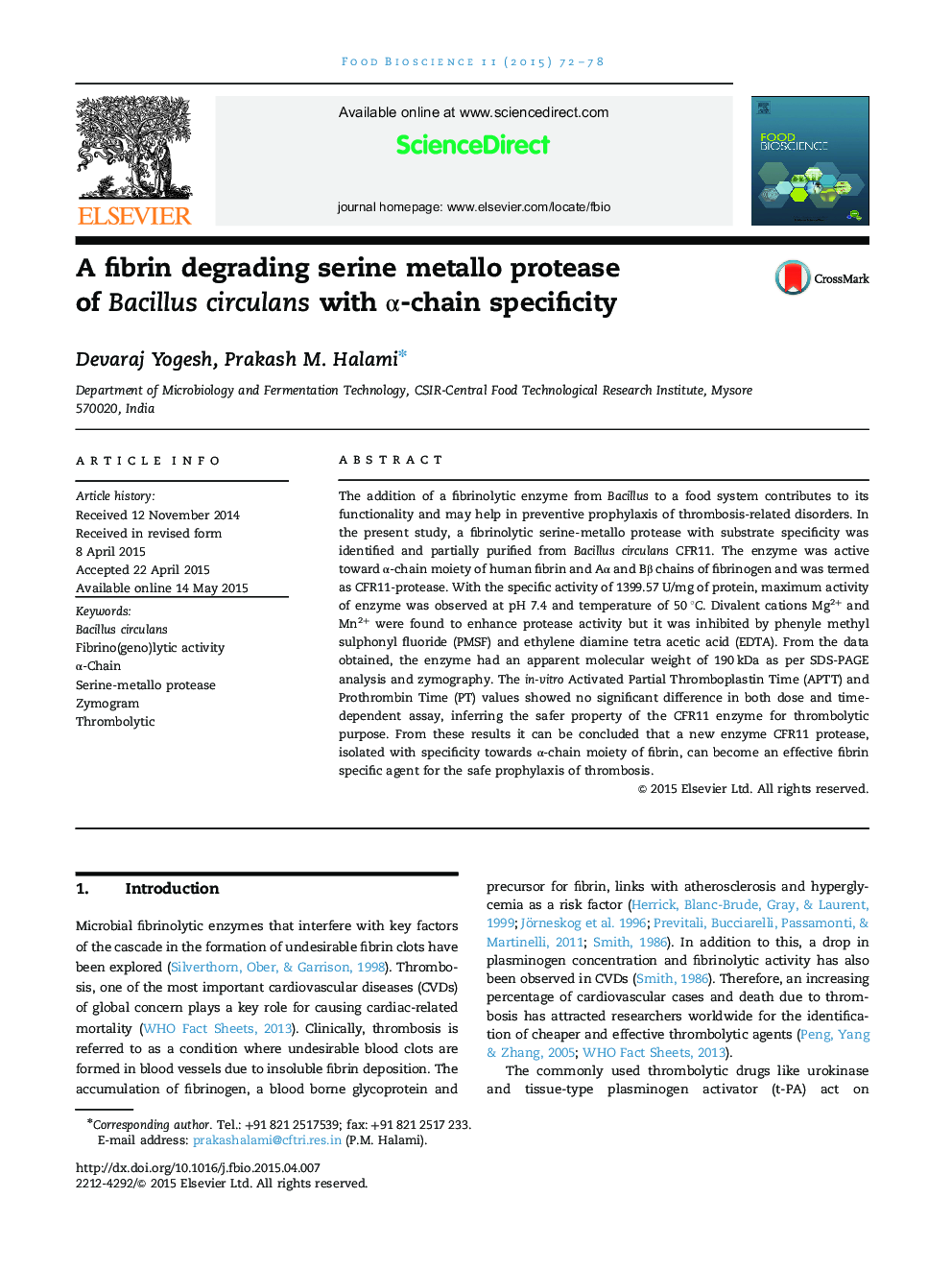| Article ID | Journal | Published Year | Pages | File Type |
|---|---|---|---|---|
| 19689 | Food Bioscience | 2015 | 7 Pages |
The addition of a fibrinolytic enzyme from Bacillus to a food system contributes to its functionality and may help in preventive prophylaxis of thrombosis-related disorders. In the present study, a fibrinolytic serine-metallo protease with substrate specificity was identified and partially purified from Bacillus circulans CFR11. The enzyme was active toward α-chain moiety of human fibrin and Aα and Bβ chains of fibrinogen and was termed as CFR11-protease. With the specific activity of 1399.57 U/mg of protein, maximum activity of enzyme was observed at pH 7.4 and temperature of 50 °C. Divalent cations Mg2+ and Mn2+ were found to enhance protease activity but it was inhibited by phenyle methyl sulphonyl fluoride (PMSF) and ethylene diamine tetra acetic acid (EDTA). From the data obtained, the enzyme had an apparent molecular weight of 190 kDa as per SDS-PAGE analysis and zymography. The in-vitro Activated Partial Thromboplastin Time (APTT) and Prothrombin Time (PT) values showed no significant difference in both dose and time-dependent assay, inferring the safer property of the CFR11 enzyme for thrombolytic purpose. From these results it can be concluded that a new enzyme CFR11 protease, isolated with specificity towards α-chain moiety of fibrin, can become an effective fibrin specific agent for the safe prophylaxis of thrombosis.
